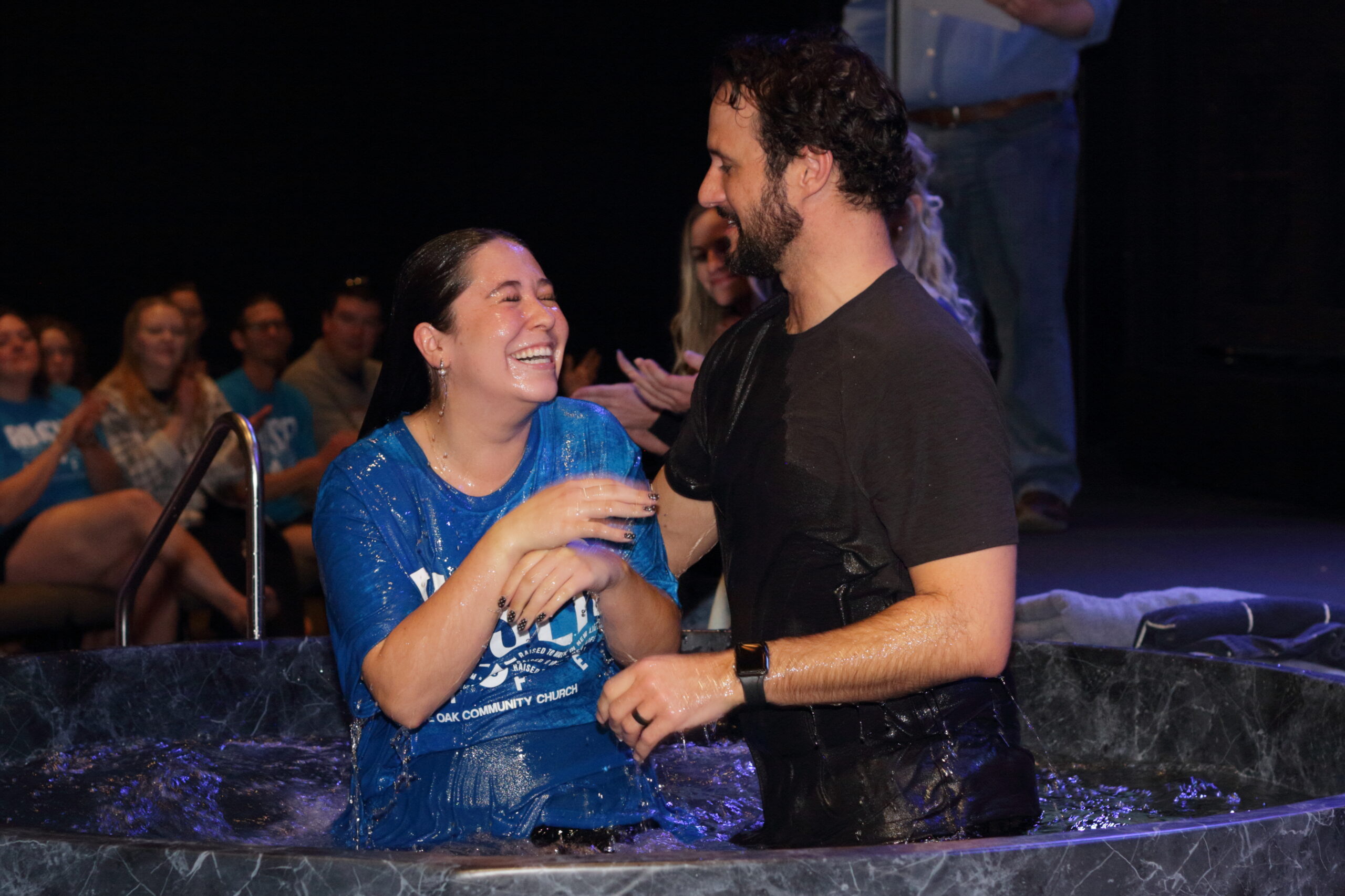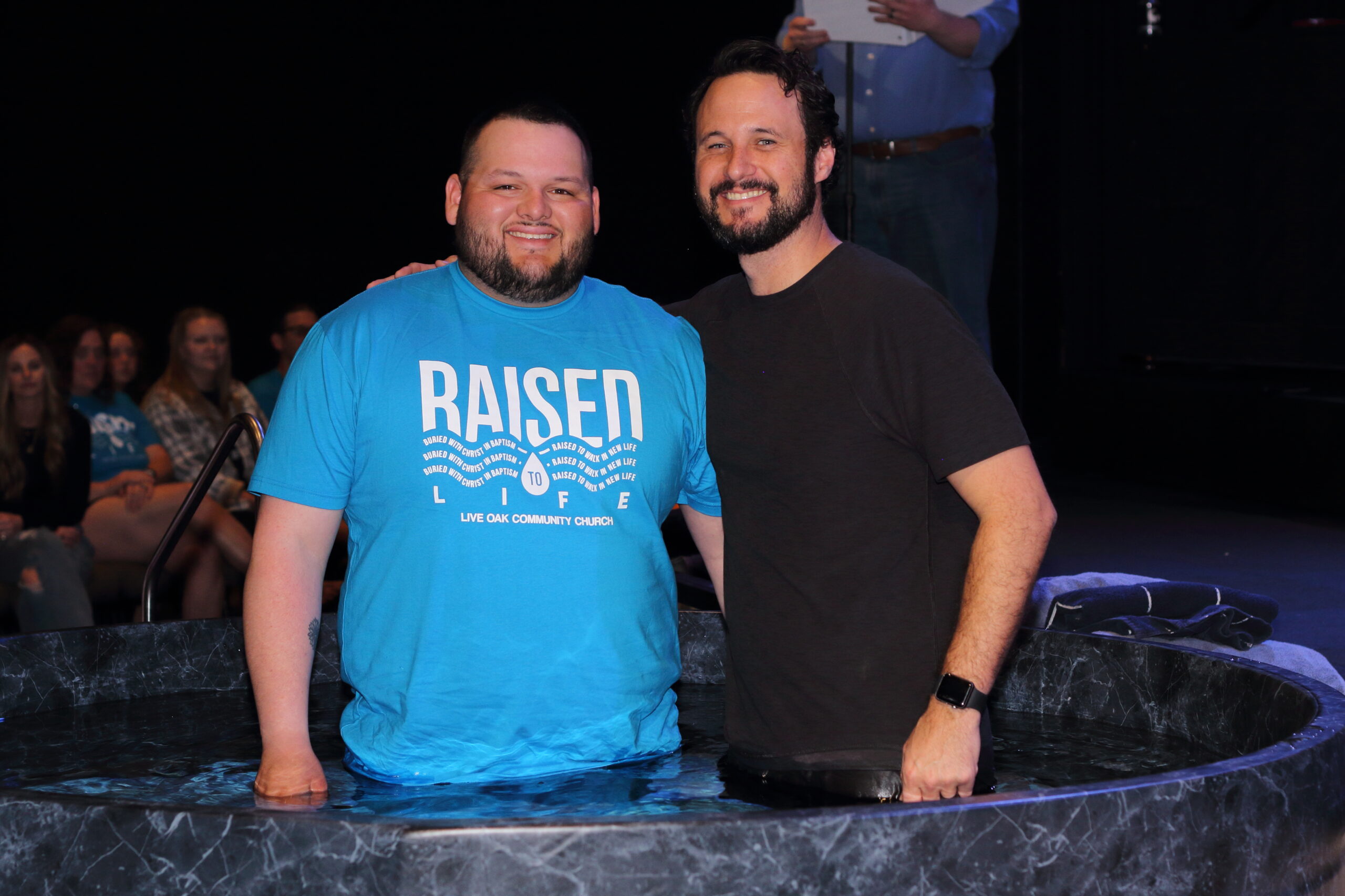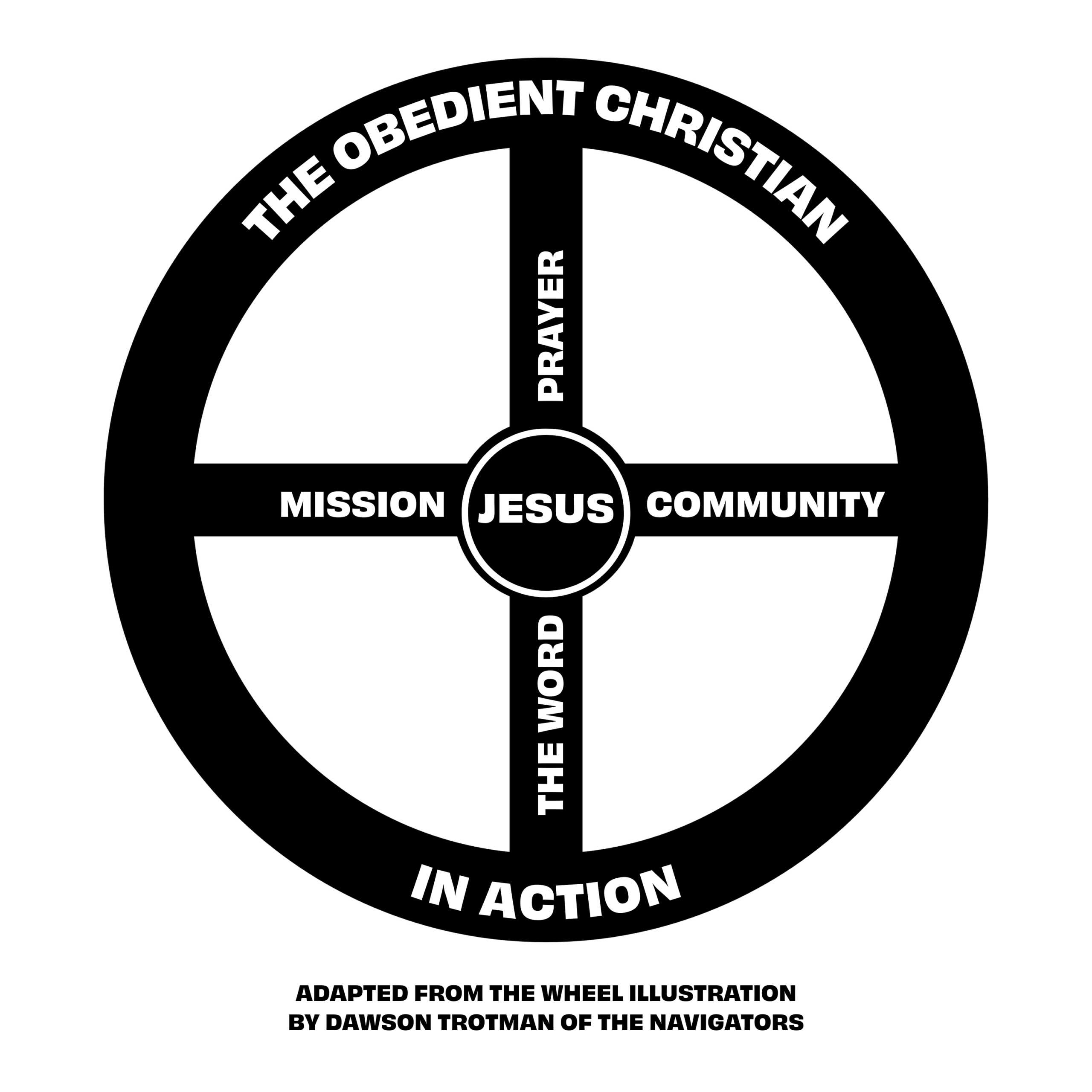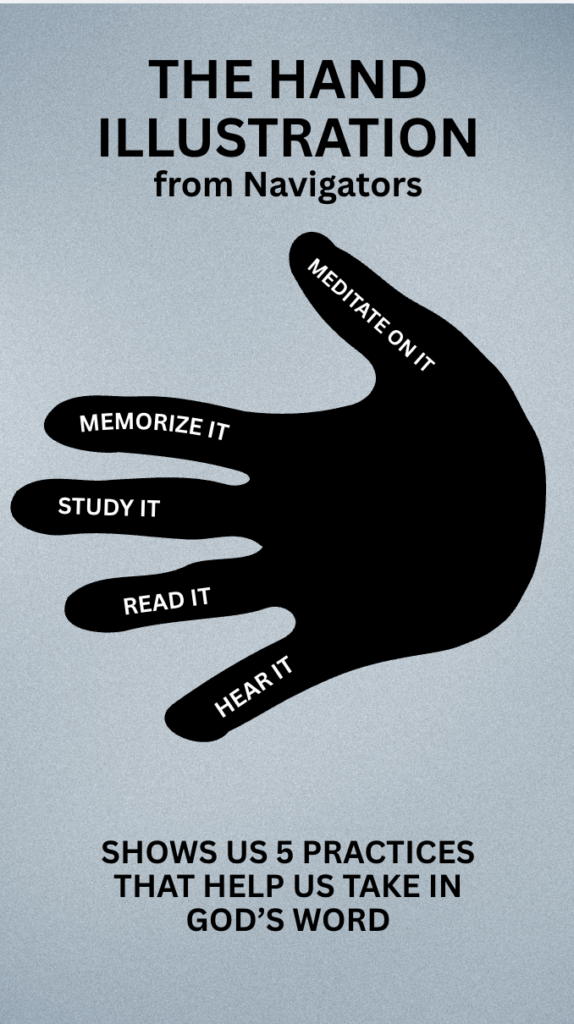Connect with God
Take Your Next Steps
SALVATION
God desires to have a relationship with us all because He loves us all. But we must first come to Him through a relationship with Jesus Christ.
Chapters 1 – 3 of Genesis recounts the creation story and the goodness, security, safety, freedom and connection that was experienced between man and God. Adam and Eve walked WITH God in the garden. Then we see an act of rebellion by man (in chapter 3) that brought brokenness, sin and death, and ruptured the relationship between man and God – a disruption and brokenness inherited by ALL who would come after. The ultimate answer to this need and rupture, and the ultimate payment for all sin came through Jesus Christ.
Learn about God’s plan for redemption and salvation through Jesus and how you can accept Jesus as your Lord and Savior:
God's Plan for Salvation
THE PROBLEM
We are all sinful and separated from God. We are stubborn and want to go our own way, and we don’t experience God’s perfect plan for our life. Nothing we can do by our own efforts will make us right with God.
Romans 3:23 – “ for all have sinned and fall short of the glory of God,”;
Romans 3:10-12 –As it is written:“There is no one righteous, not even one; there is no one who understands; there is no one who seeks God. All have turned away, they have together become worthless; there is no one who does good, not even one.”
THE SOLUTION
Jesus died on the cross to pay the price for our sins. Jesus rose from the dead in victory over sin and death. Jesus restored our relationship with God.
Romans 6:23 – For the wages of sin is death, but the gift of God is eternal life in Christ Jesus our Lord.;
Romans 5:8 – But God demonstrates his own love for us in this: While we were still sinners, Christ died for us.;
Romans 8:1 – Therefore, there is now no condemnation for those who are in Christ Jesus.
OUR RESPONSE
Believe that Jesus died to pay for your sins and that He rose again and is alive today. Receive God’s free gift and invite Jesus to be your Forgiver and Leader in life.
Romans 10:9 – If you declare with your mouth, “Jesus is Lord,” and believe in your heart that God raised him from the dead, you will be saved.
Acts 4:12 – Salvation is found in no one else, for there is no other name under heaven given to mankind by which we must be saved.
John 1:12-13 – Yet to all who did receive him, to those who believed in his name, he gave the right to become children of God— children born not of natural descent, nor of human decision or a husband’s will, but born of God.
John 3:16 – For God so loved the world, that he gave his only Son, that whoever believes in him should not perish but have eternal life. For God did not send his Son into the world to condemn the world, but in order that the world might be saved through him. Whoever believes in him is not condemned, but whoever does not believe is condemned already, because he has not believed in the name of the only Son of God.
As the scriptures say, it’s about receiving and believing. You can pray to God out loud or silently and declare that you believe in the work of Jesus on the Cross and want to receive the free gift of grace. Make it simple and honest!
WE WANT TO WALK WITH YOU…
This webpage covers the basics of salvation. We want to know if you have questions about asking Jesus to be the Lord of your life and we want to know if you have any questions about any aspect of your faith. Faith grows best in the context of both Christ and community and we’d love to connect you with others who love Jesus and can help you learn how to walk daily with Him.
Do you have questions? Did you make a decision today?


Baptism
After you have become a follower of Jesus the natural next step is to make a public profession of your faith, through BAPTISM. There is nothing magical about baptism. You are saved by faith in Christ alone, not by anything you can do, including baptism. But the great thing about choosing to be baptized is that you are doing what Christ asked us to do (see Acts 2:41), it shows the world you are on God’s team and it is a very powerful witness to others!
We celebrate baptisms four times a year. If you are interested in getting baptized you will simply fill out our form and we will send you our online baptism class. We have an adult version and a kids’ version. They are short but thorough, designed to help you understand baptism from a biblical perspective and also to help you understand what baptism is like at Live Oak!


Key Scriptures About Baptism
Matthew 3:13-17
Then Jesus came from Galilee to the Jordan to be baptized by John. But John tried to deter him, saying, “I need to be baptized by you, and do you come to me?” Jesus replied, “Let it be so now; it is proper for us to do this to fulfill all righteousness.” Then John consented. As soon as Jesus was baptized, he went up out of the water. At that moment heaven was opened, and he saw the Spirit of God descending like a dove and alighting on him. And a voice from heaven said, “This is my Son, whom I love; with him I am well pleased.”
Acts 2:41
Those who accepted his message were baptized, and about three thousand were added to their number that day.
Matthew 28:19-20
Therefore go and make disciples of all nations, baptizing them in the name of the Father and of the Son and of the Holy Spirit, and teaching them to obey everything I have commanded you. And surely I am with you always, to the very end of the age.
Galatians 3:26-27
So in Christ Jesus you are all children of God through faith, for all of you who were baptized into Christ have clothed yourselves with Christ.
CHECK OUT THESE BAPTISM STORIES
DISCIPLESHIP
After you have received the free gift of salvation and have invited Jesus to be your forgiver and your leader you are now a part of God’s family! Not only is your salvation secure for eternity but you have also been invited to live your life (a full life) in Jesus in the here and now (John 10:10). He has given us the Holy Spirit upon salvation to empower and indwell us as we live our new Jesus-life (Galatians 5:22-23, 2 Timothy 1:7, John 14:26).
We call the pursuit of a life in Christ…Discipleship or Apprenticeship. Just as Jesus had disciples that followed him and learned from Him during his 3 year earthly ministry, we are also His disciples! John Mark Comer says it like this: We seek to be with Jesus. Become like Jesus. And do as He did. Essentially as we follow Jesus and spend time with him, we are transformed into Christlikeness by the Holy Spirit who inhabits every believer, and we begin to do the things He did (pray, serve, seek, love, apprentice others). This pursuit of Jesus is life-long and it begins the moment you come to him for saving.
Key Invitations from scripture into a life of discipleship
• “Come, follow me,” Jesus said, “and I will send you out to fish for people.” Matthew 4:19.
We are invited to follow and walk with Jesus. Jesus made this invitation to his disciples and this invitation is extends to us as well.
• “I am the vine; you are the branches. If you remain in me and I in you, you will bear much fruit; apart from me you can do nothing.” John 15:5
Jesus invites us to lean on him and stay connected to him as our Source.
- In Matthew 16:24 Jesus told his disciples, “If anyone would come after me, let him deny himself and take up his cross and follow me.”
He invited them and us to give our whole selves and our whole lives sacrificially unto Him.
- But grow in the grace and knowledge of our Lord and Savior Jesus Christ. To him be glory both now and forever! Amen. 2 Peter 3:18
As followers we are invited to spiritually mature in grace and knowledge.
- Jesus answered, “I am the way and the truth and the life. No one comes to the Father except through me. John 14:6
As Dallas Willard said: The Jesus Way wedded to the Jesus Truth yields the Jesus Life. When we walk in His way and embrace His Truth we will live a transformed life!
Ultimately, we are called to lean on, pursue, learn from and prioritize Jesus in our daily life and choices. So how we set up our lives REALLY matters. We will not simply “drift” into a life of pursuing Jesus.
One of the most helpful visuals for what this looks like comes from Dawson Troutman and Navigators. “The Wheel” is a simple way to understand how you might approach your new life in Christ and in His kingdom, built around connecitng to God and to others.
*We have changed some wording on The Wheel to fit our environment but you can see the Navigators version HERE.
LEARN MORE THROUGH "THE WHEEL" ILLUSTRATION
The Wheel represents a God-glorifying life.
- When you look at a wheel in motion you only see the hub (Jesus) and outer rim (the fruit of our life as an obedient Christian)
- And though you cannot see them when in motion, the spokes are what give support and stability.
- The Vertical Spokes represnt how we relate to God through Scripture and Prayer
- The Horizontal Spokes represent how we relate to Others (in Community and through Missions)
THE CENTER HUB – CHRIST
A Christ Follower always keeps Jesus at the Center of their life
Total surrender to Christ’s authority and lordship is not always a decision made right at conversion, but is a necessary act of will. For the believer, the “old life” has gone and the new has come (2 Corinthians 5:17), and Christ has begun to dwell in us (Galatians 2:20). God creates within us the desire to do what He wants us to do in order to express His Lordship in our lives.
VERTICAL SPOKE – THE WORD
A Christ Follower makes engaging God’s Word a daily priority as a means to know and engage with God himself.
God uses His word to speak directly to us, revealing not only who He is, but how He calls us to live and interact with everyone around us (2 Timothy 3:16). This means an earnest personal intake of God’s Word is essential for our spiritual health and growth (Joshua 1:8). As God speaks to us through the Scriptures, we learn how to obey Him and apply the gospel to every part of our lives. We also come to know Jesus personally and find He is worthy of our steadfast allegiance.
LEARN MORE ABOUT ENGAGING SCRIPTURE HERE
VERTICAL SPOKE – PRAYER
Prayer is the natural response to God as we hear Him speak through His Word.
It is sharing our heart with the One who longs for our companionship and who cares about our concerns. Prayer not only trains our hearts and minds to know the power and glory of God, but also turns His ear towards action in our lives (John 15:7, Philippians 4:6-7).
LEARN MORE ABOUT PRAYER HERE
HORIZONTAL SPOKE – COMMUNITY
A Christ Follower prioritizes relationships with other believers by meaningfully connecting to a local church. This includes corporate worship experiences, small groups and discipleship relationships.
God has directed Christians to build each other up through interdependence and loving relationships with each other (Hebrews 10:24-25). Gathering together as the Body of Christ draws God close around us as we praise Him and encourage one another (Matthew 18:20).
LEARN MORE ABOUT GROUP LIFE HERE
HORIZONTAL SPOKE – MISSION
A Christ Follower seeks to share the gospel of Jesus Christ with others
God has given believers the joy and responsibility of telling the world about the good news of Christ’s work on Earth (Matthew 4:19). In fact, sharing about His amazing grace is the natural overflow of a rich, vibrant life in Christ (Romans 1:16)
LEARN MORE ABOUT SHARING YOUR FAITH HERE
THE OUTER RIM – THE OBEDIENT CHRISTIAN IN ACTION
The spokes of a wheel in motion aren’t visible but the hub and rim are. The outer rim of a Christ Followers life is the fruit others see that is a result of one’s obedience and pursuit of Jesus.
Some acts of obedience to God are internal, such as attitudes, habits, motives, values and day-to-day thoughts. But even these eventually surface outwardly in our relationships with other people. Keeping His commands in obedience is our outward indication of inward health and love for Christ (John 14:21, Romans 12:1).
As the Wheel Illistration showed us, a big part of being a disciple of Jesus is living in Christ-centered community.
- This could look like being in a small group.
- This shows up as you gear your friendships to be Christ-focused.
- This can also flesh out in discipleship relationships between 2 or 3 people. If you want to learn more about this you can head to our Discipleship Relationships Hub
The rest of this page covers 2 important components of following anf growing in Chirst, prayer and scripture engagement.
PRAYER
“And pray in the Spirit on all occasions with all kinds of prayers and requests. With this in mind, be alert and always keep on praying for all the Lord’s people.” – Ephesians 6:18
Prayer is simply talking, listening and connecting to God. Think of it as a child connecting with their parent. There are no special words needed. It’s about communing with the Lord in relationship. Be authentic and present. You can pray alone and with other Christ-followers.
Prayer is an opportunity to:
Praise Him for who He is and what you love about Him.
Confess where you have fallen short.
Share your heart with God.
Seek advice from Him.
Rest quietly in His promises and presence.
Ask for help and make requests for you and for others.
Experience union with God.
Live Oak did a Sunday series called Prayer DIY which you can find HERE for more teaching on the subject.
KEY SCRIPTURES ABOUT PRAYER
Acts 1:14
All these with one accord were devoting themselves to prayer, together with the women and Mary the mother of Jesus, and his brothers.
Romans 8:26-27
Likewise the Spirit helps us in our weakness. For we do not know what to pray for as we ought, but the Spirit himself intercedes for us with groanings too deep for words. And he who searches hearts knows what is the mind of the Spirit, because the Spirit intercedes for the saints according to the will of God.
Romans 12:12
Rejoice in hope, be patient in tribulation, be constant in prayer.
Ephesians 6:18
Praying at all times in the Spirit, with all prayer and supplication. To that end keep alert with all perseverance, making supplication for all the saints.
Hebrews 4:16
Let us then with confidence draw near to the throne of grace, that we may receive mercy and find grace to help in time of need.
1 Chronicles 16:11 Seek the Lord and his strength; seek his presence continually!
James 1:5-8
If any of you lacks wisdom, let him ask God, who gives generously to all without reproach, and it will be given him. But let him ask in faith, with no doubting, for the one who doubts is like a wave of the sea that is driven and tossed by the wind. For that person must not suppose that he will receive anything from the Lord; he is a double-minded man, unstable in all his ways.
1 John 5:14-15
And this is the confidence that we have toward him, that if we ask anything according to his will he hears us. And if we know that he hears us in whatever we ask, we know that we have the requests that we have asked of him.
2 Chronicles 7:14
If my people who are called by my name humble themselves, and pray and seek my face and turn from their wicked ways, then I will hear from heaven and will forgive their sin and heal their land.
1 Peter 3:12
For the eyes of the Lord are on the righteous, and his ears are open to their prayer.
Psalm 17:6
I call upon you, for you will answer me, O God;
incline your ear to me; hear my words.
Psalm 141:2
Let my prayer be counted as incense before you, and the lifting up of my hands as the evening sacrifice!
Philippians 4:6
Do not be anxious about anything, but in everything by prayer and supplication with thanksgiving let your requests be made known to God.
Psalm 145:18-19
The Lord is near to all who call on him, to all who call on him in truth. He fulfills the desire of those who fear him; he also hears their cry and saves them.
Matthew 5:44
But I say to you, Love your enemies and pray for those who persecute you.
Matthew 6:6
But when you pray, go into your room and shut the door and pray to your Father who is in secret. And your Father who sees in secret will reward you.
Matthew 26:41
Watch and pray that you may not enter into temptation. The spirit indeed is willing, but the flesh is weak.
Mark 11:24-25
Therefore I tell you, whatever you ask in prayer, believe that you have received it, and it will be yours. And whenever you stand praying, forgive, if you have anything against anyone, so that your Father also who is in heaven may forgive you your trespasses.
There is no one right way to pray, but these different practices might help you as you seek to commune with God.
A.C.T.S. Approach
This simple approach to prayer is a great place to start. Find some quiet. Still your body and set your focus and intention on God. Pray through the ACTS acrostic:
Adoration
“Praise be to God” Psalm 68:5
Tell God how much you appreciate Him. Express your love for Him and all the amazing things he has done.
Confession
“If we confess our sins, He is faithful and just, and will forgive us our sins and purify us from all unrighteousness.” 1 John 1:9
Tell Him where you have fallen short. Be specific. Thank him for forgiveness through Christ. Ask for help and strength to turn away from temptations.
Thanksgiving
“Always glorify him with thanksgiving” Psalm 69:30
You have plenty of reasons to be thankful. Thank God for His love, provision, faithfulness, and the list goes on.
Supplication (requests to God)
“Make your requests known to God.” Philippians 4:6
Tell God what you want for others (family, friends, church family, coworkers, neighbors, the stranger) then for yourself. No request is too small for our God.
Listening Prayer
- Find a place of quiet and calm.
- Read a scripture passage slowly and just breathe to slow down your body and mind.
- Close your eyes and focus on the God who loves you and wants to commune with you.
- Ask Him to meet with you, be with you and communicate with you
- Sit quietly and just listen.This is not an easy practice in our chaotic, digital, instant world. Be patient. Give it time and don’t give up.
Breath Prayer
Breath prayer is a simple practice that involves combining a short prayer phrase with the rhythm of your breath, typically inhaling and exhaling with different parts of the prayer. You can use a passage of scripture as a breath prayer. This helps focus your mind to connect with God and can be done throughout the day.
Example using Psalm 68:19 Praise be to the Lord, to God our Savior,who daily bears our burdens.
- Quiet your mind. Close your eyes and breathe in and out steadily until you sense calm and focus.
- Then Breath in: Praise be to God, my Savior
- Exhale: Who daily bears my burdens
- Sit still and repeat this, meditating and focusing your heart and mind, for a minute or two or as long as you like.
- Come back to this prayer during pockets of your day when you have a few minutes
The Lord's Prayer
Jesus provided us with a pattern for prayer which is referred to as the Lord’s Prayer While it is beneficial to recite this prayer exactly as Jesus spoke it, He did not intend for it to be the only way we pray. Instead, the prayer found in Matthew 6:9-13 and Luke 11:2-4 serves as an example, highlighting the essential elements that should be present in our own prayers.
Matthew 6:9-13
This, then, is how you should pray:
Our Father in heaven, (establishes the loving relationship between God and humanity)
hallowed be your name, (showing honor and praise to Him)
your kingdom come, your will be done, on earth as it is in heaven. (A prayer for God’s will to be done on earth as it is in heaven and be carried out in every aspect of life)
Give us today our daily bread. (asking God to provide for our daily needs, both material and spiritual.)
And forgive us our debts, as we also have forgiven our debtors. (Asking God for God to forgive our sins and trespasses.)
And lead us not into temptation, but deliver us from the evil one. (Requesting for deliverance from the evil one and all harmful influences.)
Church Wide Bible Reading Plan
Connect with Scripture
Reading and reflecting on Scripture is a powerful catalyst in your spritual journey, whether you are exploring a relationship with Jesus or have walked with Him for many years. The Word of God is His testimony to us about who he is and His plan to redeem and restore the world to himself. Engaging the Word is how we learn who God is and it is one way we can hear from Him, as it is alive and active and the Holy Spirit moves in it and in us as we engage it.
As a church, we will provide you with support, encouragement, and tools to engage God’s word. Reading and reflecting on Scripture is a personal discipline. It will be up to you to read, reflect, and discuss.
How can I get started?
Scroll on for helpful scripture engagement tools and links!
Be sure to stop by Guest Central in the foyer to get a Scripture Engagement journal.
Key Scriptures Related to Scripture:
Hebrews 4:12 – For the word of God is living and active, sharper than any two-edged sword, piercing to the division of soul and of spirit, of joints and of marrow, and discerning the thoughts and intentions of the heart.
2 Timothy 3:16-17 – All Scripture is breathed out by God and profitable for teaching, for reproof, for correction, and for training in righteousness, that the man of God may be complete, equipped for every good work.
Matthew 4:4 – But he answered, “It is written, “‘Man shall not live by bread alone, but by every word that comes from the mouth of God.’”
Colossians 3:16 – Let the word of Christ dwell in you richly, teaching and admonishing one another in all wisdom, singing psalms and hymns and spiritual songs, with thankfulness in your hearts to God.
Isaiah 40:8 – The grass withers, the flower fades, but the word of our God will stand forever.
SOAPS Method
One of the most practical tools we can provide is called the SOAPS study method, which is outlined below. Pick up your own SOAPS Journal in the foyer at Live Oak.
WHAT IS SOAPS?
The SOAPS acrostic is designed to help you read and reflect on a passage of Scripture. Journaling helps us hear from God and more importantly apply what you have read to your life and circumstances.
HOW DOES IT WORK?
-Read a passage of Scripture from a reading plan (you can find reading plans at Youversion.com and other online bibles, but Live Oak will almost always have a Church-wide reading plan in place that follows the current Sunday series.)
-Turn to a fresh page in your journal.
– Write today’s date and follow this model…
SCRIPTURE
Write down the main Scripture that stood out to you from a section of reading.
OBSERVATION
Write down what you have seen in the Scripture. What? When? Where? How? What is happening or what is being communicated? What is God trying to say to me through this part of His Word?
APPLICATION
Personalize what you have just read and write down how it applies to your life. Ask yourself, “How will my life be different because of what I just read?” “How does it apply to my life right now?”
PRAYER
Write out your prayer. This can be as simple as asking God to help you use the Scripture, or it may be a greater insight He is revealing to you. Make it honest and heartfelt!
SHARE
While journaling is a very personal time, you may want to share some of your daily journaling with your family, friends, or small group. By sharing with others, you may gain new insight or encourage others.
2 Timothy Tool
2 Timothy 3:16-17
All Scripture is God-breathed and is useful for teaching, rebuking, correcting and training in righteousness, so that the servant of God may be thoroughly equipped for every good work.
5 Application Questions As You Read Scripture:
Teaching: What is the basic truth God wants me to know?
Rebuking: What error in judgment, understanding or behavior might this passage be rebuking in my life?
Correction: How might this passage correct, balance or redirect me?
Training: What does this passage present to prepare me for living a God honoring life or for facing some future challenge?
Equipped for Every Good Work: How might this passage equip me for serving God and people
S.P.A.C.E.P.E.T.S TOOL
One tool to help you engage scripture and to really dig into the application of it into your life is the acronym S.P.A.C.E.P.E.T.S.
As you read and reflect, ask yourself, “Is there a…”
- Sin to confess?
- Promise to claim?
- Attitude to change?
- Command to obey?
- Example to follow?
- Prayer to pray?
- Error to avoid?
- Truth to believe?
- Something to praise God for?
S.P.E.C.K. TOOL
The SPECK TOOL for Bible engagement to help with looking for a truth to grab hold of and an application to live out…
Look for a S.P.E.C.K. of Godly truth.
S = Sin(s) to avoid.
P = Promise(s) to claim.
E =Example(s) to follow OR avoid.
C = Command(s) to obey.
K = Knowledge about who God is and knowledge of who I am in Christ.
The Hand Illustration
The Hand Illustration (from Navigators) show us 5 ways to get God’s Word into us! It can be said that these practices help us “get a grip” on scripture so it can haver a grip on our lives.
HEAR IT
Consequently, faith comes from hearing the message, and the message is heard through the word about Christ. Romans 10:17
READ IT
Blessed is the one who reads aloud the words of this prophecy, and blessed are those who hear it and take to heart what is written in it, because the time is near. Revelation 1:3
STUDY IT
Now the Berean Jews were of more noble character than those in Thessalonica, for they received the message with great eagerness and examined the Scriptures every day to see if what Paul said was true. Acts 7:11
MEMORIZE IT
How can a young person stay on the path of purity? By living according to your word…I have hidden your word in my heart that I might not sin against you. Psalms 119:9,11
MEDITATE ON IT
but whose delight is in the law of the Lord, and who meditates on his law day and night. That person is like a tree planted by streams of water, which yields its fruit in season and whose leaf does not wither-whatever they do prospers. Psalms 1:2-3
BIBLE TRANSLATIONS GUIDE
The Bible was written in Hebrew (and some Aramaic) for the Old Testament, and Greek for the New Testament. Most translators seek to be faithful to the Scriptures but typically translate from two different approaches: a word-for word or a thought-for-thought perspective.
Here are a few of the most common translations:
New international Version (NIV) The NIV is highly accurate and smooth reading version in modern English. It is best characterized as balance between word-for-word and thought-for-thought. “The NIV delivers the best balance of accuracy to the original languages and clarity of meaning in contemporary English.”(www.thenivbible.com)
English Standard Version (ESV) The ESV pays special attention to word-for-word translation. It is a revision of the Revised Standard Version (1971 edition). The translators essentially set out to provide a literal translation of the Scripture in contemporary English.
Amplified (AMP) The Amplified was written to create deeper understanding and meaning to the text. It leans heavily toward the word-for-word end of the spectrum. The goal of the amplified translators was increasing the clarity and relevance of the text. However, it can read a little clunky. “Its goal was to take both word meaning and context into account to accurately translate the original text from one language into another.” (www.biblegateway.com)
New Living Translation (NLT) This translation leans toward the thought-for-thought side of the spectrum. The translators sought to take the original Scriptures and bring them into more contemporary language and phrasing. This translation attempts to bring in entire thoughts rather than just words to our modern-day English.
The Message This translation is on the far end of thought-for-thought part of the spectrum. “This is a paraphrase of the Bible by Eugene Peterson, who used the original Greek and Hebrew texts and tried to bring their “feel”—their tone, rhythm, and idiom—directly into contemporary English.” – American Bible Society. Utilizing The Message in conjunction with a word-for-word translation can be very useful for deeper understanding.
Pray Before You Read (From The Bible Recap)
This come from Tara Lee Cobble and The Bible Recap. Learn more about it HERE
Before you read God’s Word today, ask for His help by praying these 5 prayers:
1. God, give me wisdom, knowledge, and understanding.
2. Let any knowledge I gain help me love You and others more, and not puff me up.
3. Help me see something new about You that I’ve never seen before.
4. Correct any lies I believe about You or anything I misunderstand.
5. Direct my steps according to Your Word. Amen.
LINKS TO BOOKS AND SITES:
Check out these links to help you engage Scripture:
youversion.com
4 Small Words by Jarrett Stevens
BibleGateway.com
BibleStudyTools.com
BlueLetterBible.com
How to Read the Bible Book by Book by Gordon Fee and Douglas Stewart





